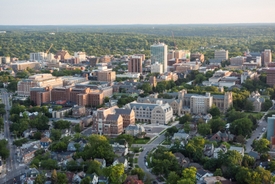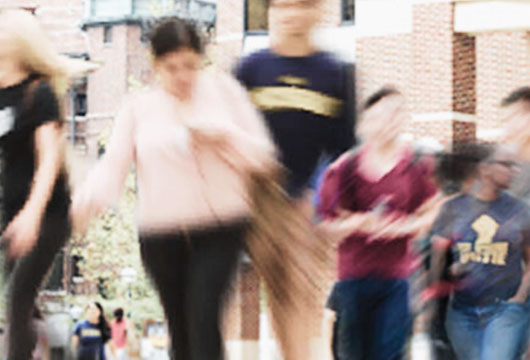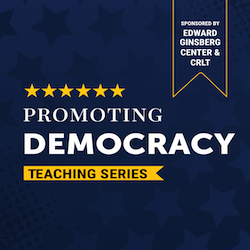 As our campus prepares to begin the Winter 2021 semester, the country prepares for the inauguration of its 46th President. The inauguration often signals the closure of our election season for at least another two years. This year, however, the inauguration comes as one more uncertain and potentially volatile event in an election season marked by unprecedented attacks on our democratic processes. The most recent example of this was the violent and unnerving disruption of the ratification proceedings on January 6th. Though the mob ultimately failed to alter the results of those proceedings, it succeeded in further amplifying the white nationalist, anti-Semitic, xenophobic, and anti-Black politics and actions that have profoundly shaped this election season. The attack on the capitol hangs heavy for many as we approach the inauguration on January 20th. At CRLT, we want to acknowledge more specifically that events such as the attack on the capitol and upcoming inauguration are important context for the beginning of the Winter 2021 semester and are likely shaping the expectations and plans of students and instructors as you prepare to re-enter the classroom. We share this brief blog post to encourage you to keep the following in mind as you finish final preparations for your courses:
As our campus prepares to begin the Winter 2021 semester, the country prepares for the inauguration of its 46th President. The inauguration often signals the closure of our election season for at least another two years. This year, however, the inauguration comes as one more uncertain and potentially volatile event in an election season marked by unprecedented attacks on our democratic processes. The most recent example of this was the violent and unnerving disruption of the ratification proceedings on January 6th. Though the mob ultimately failed to alter the results of those proceedings, it succeeded in further amplifying the white nationalist, anti-Semitic, xenophobic, and anti-Black politics and actions that have profoundly shaped this election season. The attack on the capitol hangs heavy for many as we approach the inauguration on January 20th. At CRLT, we want to acknowledge more specifically that events such as the attack on the capitol and upcoming inauguration are important context for the beginning of the Winter 2021 semester and are likely shaping the expectations and plans of students and instructors as you prepare to re-enter the classroom. We share this brief blog post to encourage you to keep the following in mind as you finish final preparations for your courses:
- Recognize the social, political, cultural, and emotional impact of this moment. In your courses, it is important to acknowledge the inauguration and its significance for US democracy and for the current state of our national political landscape.
- Create course interactions that are humanizing and affirming. You can begin to do this by acknowledging and affirming that students, as well as you, the instructor, will have a range of responses to the inauguration and the events leading up to it. Some students will be excited, while others may be anxious, afraid, or angry.
- Balance proactive planning with adaptability. Create a proactive but flexible plan for your course if you are teaching on or around inauguration day. Will you allow students space in class to process any of their feelings and reactions to the event? If so, will you do that through writing or small or large group discussion? If not, how will you respond if it becomes evident that students are eager to use class time to discuss the inauguration and the last several months or years leading up to it?
- In order to plan proactively, revisit some of the excellent resources that CRLT and other units across campus have compiled to support students and instructors in their teaching and learning efforts at this time. Below is a list of some recent resources that you may find helpful in your course planning around the inauguration:
- CRLT Resources:
- CRLT & The Ginsberg Center Election 2020 series:
- Debate & Democracy Theme Semester
- The Program on Intergroup Relations
- Log in to post comments
- 445 views






